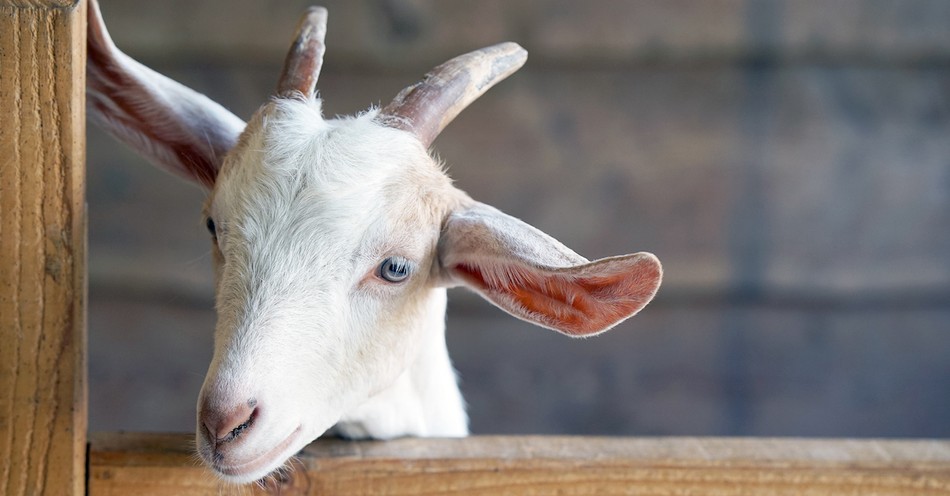In our modern-day and age, we do not typically hear of the word scapegoat. Has someone ever taken a burden off of you? Maybe it was a family member or a friend? One of the most beautiful pictures of salvation and rescue portrayed comes down to the meaning of scapegoat.
What Is the Meaning of Scapegoat in the Bible?
There are a few meanings of scapegoat in Webster’s Dictionary.
1. A goat upon whose head are symbolically placed the sins of the people after which he is sent into the wilderness in the biblical ceremony for Yom Kippur
2. One that bears the blame for others
In recognizing the Jewish culture and the ceremonies for the forgiveness of sins, we learn of multiple holidays and festivals. One well-known Judean holy day is called Yom Kippur. This is also known as the Day of Atonement (Day of covering and forgiveness of sins). The concept is as if we are each on trial for our sins, but our mistakes are forgiven by blood.
Now that we live after the Messiah Jesus came, we know that He took away the sins of those who believe once and for all. We no longer need a Day of Atonement; we have eternal forgiveness and mercy from our great God. However, during these days before Christ, the people of the Lord were given rituals to perform on behalf of their sins. Many times, a priest would sacrifice animals and the blood of the animals would cover the sins of the people. Jesus is the forgiver of all sins. We know that the people before Christ were forgiven like Abraham, not because of their actions, but ultimately because of the faith of the coming Savior (Romans 4:3).
When we see the second part of the scapegoat definition, we notice one takes on the punishment for others. The entire Bible ties together and we see the foreshadowing of the coming Savior Jesus in the Old Testament clearly many times, but in this instance, it is crying out in such an evident way.
Many times, people compare Jesus to the scapegoat, but I also love to compare Jesus with the sacrificed goat and us as the ones who are set free. I think of Matthew 27:17-26 when Jesus had been arrested and was standing next to the murderer Barabbas. Two men (two goats) one innocent, one with terrible sins. The people were asked to choose if they would want to release Jesus or Barabbas. The crowd chose Barabbas to be set free. Jesus, the innocent was slaughtered for our sins. Barabbas was the scapegoat. We are each Barabbas. When standing before the Holy Judge, Jesus died for our sins, and we are given mercy and freedom from death. Jesus took our place.
How Was the Scapegoat Used in the Old Testament?
According to Leviticus 16, during Yom Kippur two goats would be presented for a sacrifice. One goat would be slaughtered, and the other goat called “Azazel” would be set free into the wilderness. According to Dr. Simon Holloway of the Sydney Jewish Museum, in 1530 while translating the English Scriptures, William Tyndale translated “Azazel” to the word “escapegoat.” This led to the eventual word, “scapegoat.” Although the two are different words, the meaning remained the same. Two goats, one sacrificed and the other set free.
Bible Study Tools Dictionary teaches us that when the priest laid Israel's guilt on the scapegoat, the goat was sent into the wilderness as a reminder that their sins went away out of the land where the people lived. I think of God casting our sins away in Micah 7:19.
How Is Jesus Our Scapegoat?
Because a scapegoat “carried away” the sins of the people, Jesus is often compared to being the Scapegoat of all believers.
Lisa Loraine Baker from Bible Study Tools brings up the point that Jesus is compared to our Scapegoat because He lived a sinless life and died a bloody death, raising Himself back to life defeating all of our sins. She reminds us of John 1:29 comparing Jesus to the Lamb of God who removed the sins of the world.
Knowing that Jesus is our scapegoat frees us from the burden of having to go through a priest anymore. We no longer have the pressure to have a ceremony correctly to cover our sins, but we have the blood of Jesus over our lives. Jesus’ sacrifice brings freedom to us in an incredible way that propels us to confess our sins and repent from them. We will daily desire to live lives free from sin and walking in the fullness of life that Jesus offers us. We know that our iniquities were forgiven for all of time, but we still go to God regularly with a heart of gratitude and in need of the Holy Spirit’s strength to enable us to live Christ-honoring lives.
A scapegoat would not have encouraged more sinning, but more repentance. Truly comprehending the grace of Jesus does not motivate a sinful lifestyle, but a heart of confession and a life of surrender to His ways. Jesus removed our sins and by His strength may we desire to never see them again. May this concept motivate the church to be a people of full devotion to the Lord.
Why Is This Such an Important Concept?
Understanding the weight of our sin and the freedom Jesus has brought to us gives us a greater love for God.
Jennifer Waddle from Crosswalk tells us that there is a joy in no longer needing a scapegoat because Jesus came and died for all of our sins completely. She emphasizes that we do not need a yearly ritual because Jesus’ work was permanent. She reminds us of Psalm 103:12 that our sins are removed as far as the East is from the West.
Understanding the scapegoat gives us peace within our souls. Instead of being weighed down by all of the sins we committed over the past year, Jesus has taken on all of the sins that we commit in our entire lifetimes. This is no small removal; this is great mercy.
The Bible mentions the concept of a courtroom scenario where our sins are forgiven even though we deserve punishment (Isaiah 3, 2 Peter 2). There are also countless times where a priest takes care of the sins of the people (Leviticus 4, Mark 1:44, Hebrews 7:27, Hebrews 9). When we can stop and think about the weight of the issue of our sins, we can know that it was no small task for Jesus to come to earth, die on our behalf, and raise Himself back. Our punishment was death and eternal separation from our Father. We would be hopeless at this very moment had Jesus not come for us. However, we can celebrate today and worship our King for redeeming us by His great love.
Maybe you feel heavy from a particular sin in your life today? There is no need to carry this on your own. Just as the sins of the people of God were placed on the scapegoat, your sins and my sins were placed on the Scapegoat of Jesus and He took them away, never to return again. Let us ask for the power and strength to fully embrace forgiveness and walk in God’s ways for our lives. We will always have sin, but our Scapegoat is continually washing us whiter than snow. There is no more need for an earthly priest, our High Priest Jesus has come.
Photo credit: ©GettyImages/Igor Vershinsky




